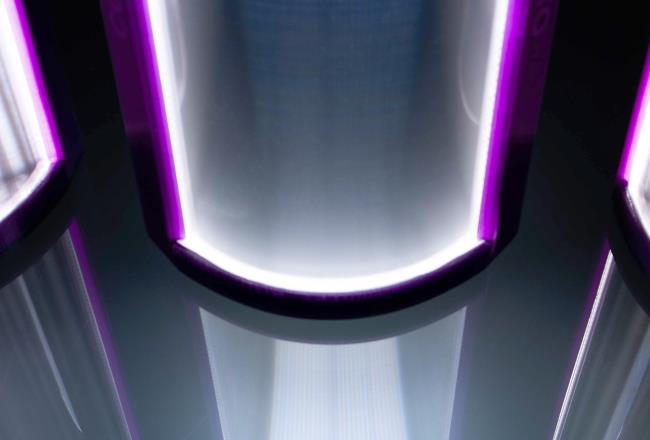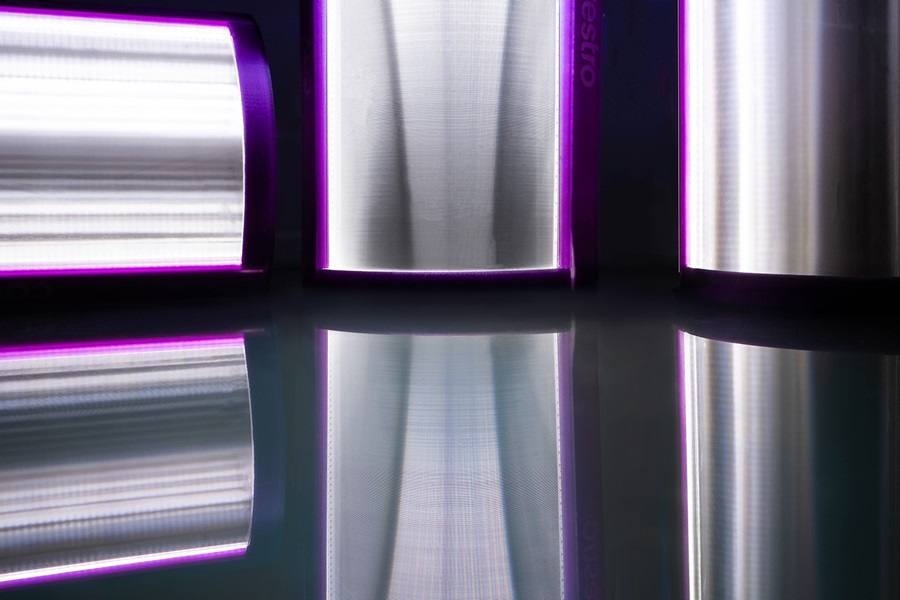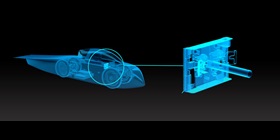
Case study
Addigy® offers a light, thermally conductive material for the embedding of LEDs
LEDs are embedded into a material that is thermally conductive and can transport the heat away from the LED. A commonly used material is aluminum. However, this material is quite heavy and it cannot produce any complex shapes. Addigy® allows the 3D printing of complex bionic structures – resulting in a highly thermally conductive and light material. What’s more, this material can exchange the heat with the air and thus makes it possible to extend the lifespan of LEDs.
The task was to come up with a material that is thermally conductive. The aim was to use that material and print the part of the lamp into which the LED is embedded. In order to maximize the amount of heat that is exchanged with the air, a complex bionic structure is needed.

Printing a thermally conductive material is challenging because the material is highly filled and has low interlayer adhesion. With Addigy® we aimed to find a solution to overcome these challenges.
LEDs are the go-to option for energy-efficient lighting. Together with our industry partners we cover all competencies to develop an edge lighting luminaire.
cKuGWNxWpkJbAd837G7UD
https://asset-out-cdn.video-cdn.net/private/videos/-cKuGWNxWpkJbAd837G7UD/thumbnails/565706?quality=thumbnail&__token__=exp=1756582292~acl=/private/videos/-cKuGWNxWpkJbAd837G7UD/thumbnails/565706*~hmac=becb55ba4e87e2448b2333d47ef0dec5b3ea879fb0bd30309dcfdb2e0a32e46f
LED Lighting K19.mp4
Our special thermoconductive polycarbonate is a highly suitable printing material for the embedding of LEDs. In combination with the right equipment – a printer with a heated build room – it is highly processable with a 3D printer. Addigy® offers two main advantages for the printing of LED-embeddings: polycarbonate is lighter than aluminum and it allows the printing of complex structures. The bigger the surface, the more heat it can exchange with the air. As a result, Addigy® makes it possible to embed LEDs into a frame that has a maximized surface and thus prevents the LEDs from getting too hot. This extends the lifespan of the LED.
The team also succeeded in printing light shades with Addigy® polycarbonate. They give the frame a higher stability and open up new possibilities for individualization in color and labeling. Addigy® PC is highly temperature-resistant so that even LEDs with a very high energy level can be used without getting too hot.
The team also succeeded in printing light shades with Addigy® polycarbonate. They give the frame a higher stability and open up new possibilities for individualization in color and labeling. Addigy® PC is highly temperature-resistant so that even LEDs with a very high energy level can be used without getting too hot.
The combination of a thermally conductive material and the complex printed structure opens up completely new opportunities for heat management in E&E applications
Why Addigy® was the right solution for the embedding of LEDs
- Lighter than aluminum: Polycarbonate is lighter than aluminum and thus makes the entire lamp lighter.
- Maximized surface: Addigy® allows the printing of highly complex surface structures that maximize the LED’s heat exchange with the air.
- High stability: Makrolon® light shades give the frame a high stability.
- Individualization: Makrolon® light shades allow individualization regarding color and labeling.
- Temperature-resistance: Polycarbonate is highly thermally conductive and heat-resistant.











